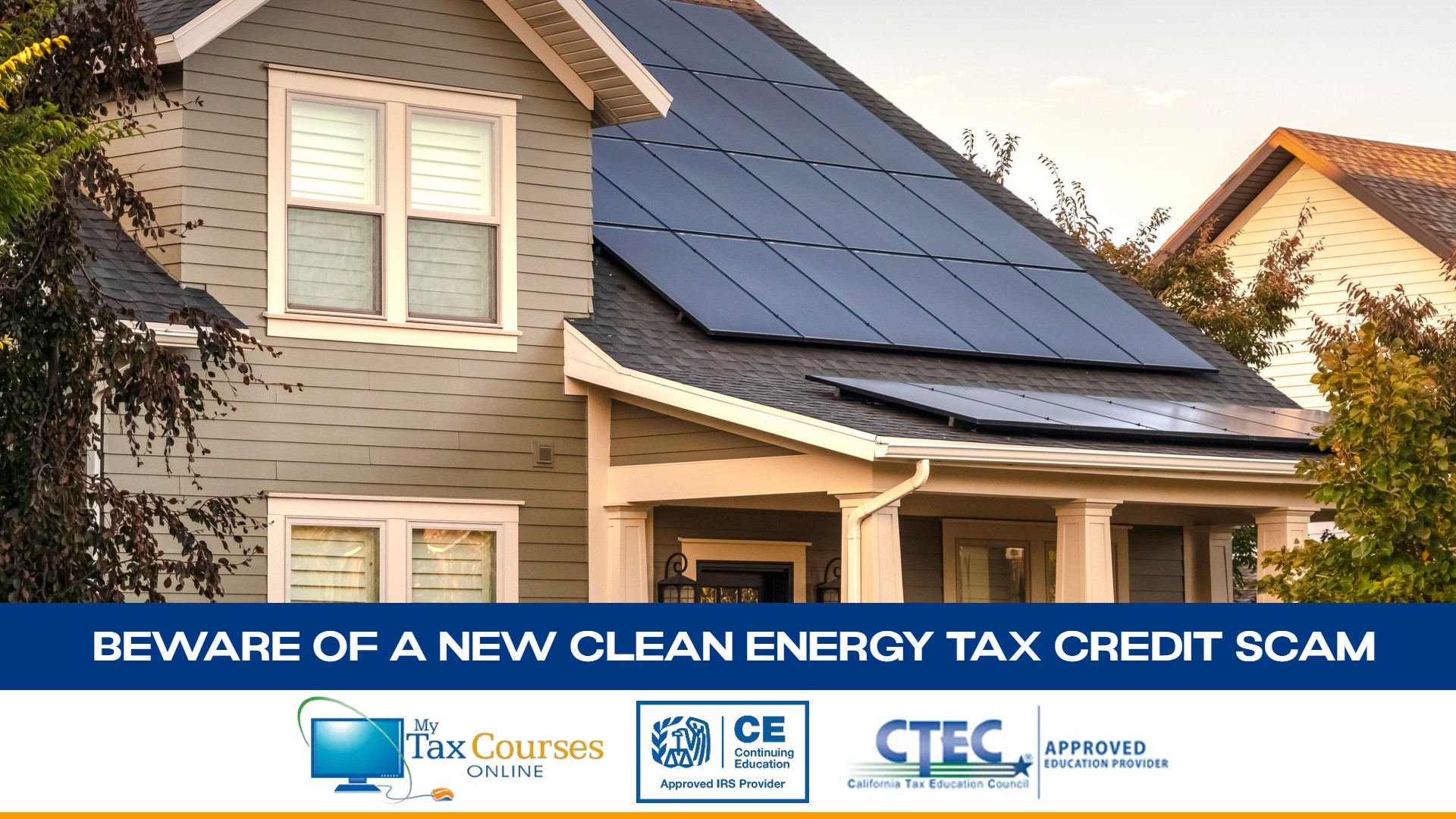With so much at stake, it's crucial to stay vigilant against emerging scams that target unsuspecting taxpayers. The latest Internal Revenue Service (IRS) alert highlights a new fraudulent scheme involving clean energy tax credits under the Inflation Reduction Act (IRA). This blog post will delve into the details of this scam, the risks it poses, and the steps tax preparers can take to protect their clients.
Understanding the Scam
The scam revolves around the misrepresentation of rules for claiming clean energy credits. Unscrupulous tax return preparers are exploiting the IRA's transferability provisions, which allow the purchase of eligible federal income tax credits from investments in clean energy. These credits can offset a buyer's tax liability. However, scammers are filing returns that improperly claim these credits, targeting individuals who file Form 1040.
Key Points of the Scam:
- Misrepresentation of Credits: Fraudulent preparers are convincing taxpayers to claim clean energy credits they are not entitled to, misleading them about the eligibility and applicability of these credits.
- Target Audience: The scam primarily targets individuals with tax liabilities from wages, Social Security, and retirement account withdrawals, despite these sources not being suitable for offset by purchased clean energy credits.
- Passive Activity Rules: Purchased credits can only offset income tax from passive activities. Most taxpayers do not have passive income, making these credits inapplicable to their situation.
Risks for Taxpayers
Taxpayers who fall for this scam risk severe consequences. Claiming inappropriate credits can lead to future compliance actions by the IRS, requiring them to repay the inflated credits with interest and possible penalties. Furthermore, such actions can trigger audits and prolonged legal troubles.
Commissioner's Warning
IRS Commissioner Danny Werfel emphasized the complexity of tax laws and the need for vigilance against such scams. He urges taxpayers to consult reputable tax professionals before claiming complex credits like clean energy. The IRS is actively monitoring this scam and advises taxpayers to be cautious of promoters pushing dubious credits.
Protecting Your Clients
As a tax preparer, it's your responsibility to safeguard your clients from falling victim to these fraudulent schemes. Here are the steps you can take:
- Educate Your Clients
-
- Explain the complexities of clean energy credits and the passive activity rules.
- Warn them about the dangers of following advice from untrustworthy sources.
- Verify Eligibility
-
- Thoroughly assess if your clients qualify for any clean energy credits.
- Ensure they understand the limitations and applicability of these credits to their tax situation.
- Stay Informed
-
- Keep up-to-date with IRS alerts and warnings regarding new scams.
- Regularly check the IRS website for updates on clean energy credits and other tax-related information.
- Report Fraudulent Activity
-
- If you encounter suspicious activities or abusive tax schemes, report them using the IRS Form 14242.
- Encourage clients to report any dubious tax preparers to the IRS Whistleblower Office for potential monetary awards.
Additional Resources
Visit the IRS Inflation Reduction Act of 2022 page for more detailed information about clean energy credits and the Inflation Reduction Act.
The emergence of scams involving clean energy tax credits under the IRA highlights the importance of due diligence and awareness. As trusted tax preparers, educating and protecting your clients from falling prey to such fraudulent schemes is crucial. By staying informed and vigilant, you can help ensure your clients claim only the credits they are entitled to, safeguarding them from potential legal and financial repercussions.




